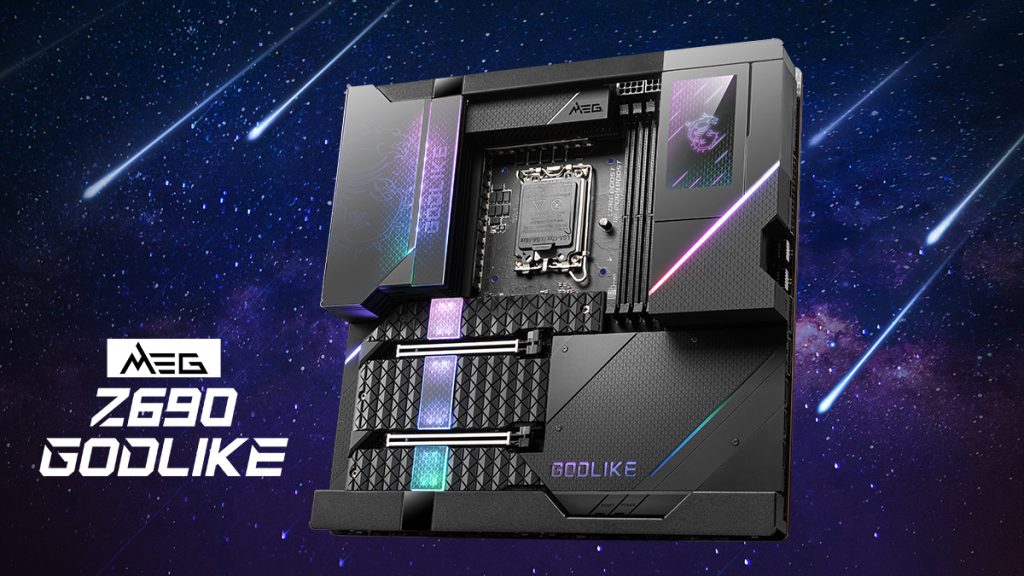MSI is finally ready to officially announce its flagship Z690 motherboard, the MEG Z690 Godlike. As the leaked images showed us, MSI's new E-ATX motherboard will feature an LCD dashboard, lots of ARGB lighting, and all the bells and whistles you can add to a motherboard.
Starting with its aesthetics, the MSI MEG Z690 Godlike uses a full-cover design for a more minimalistic look. On the right side of the board, there's a 3.5-inch IPS display that you can configure to display information about the system, monitor your hardware, show debug codes and live weather, and even work as a clock. The display is strapped to the board with magnets, meaning you can detach it and use it independently, as long as it's connected to the motherboard via USB.

The cooling solution employed on the motherboard is clearly above what you usually see in other motherboards, using a cross heat-pipe design, aluminium cover and MOS heatsinks with a wavy fin design on top of 7W/mK thermal pads. After all, it will have to keep the temperatures of a 20+2-phase design (105A) in check. Additionally, the motherboard features 2x 8-pin power connectors, an 8-layer 2oz Copper PCB, and magnetic double-sided M.2 Shield Frozr heatsinks.
In total, the Z690 Godlike features 6x M.2 slots, 2x PCIe 5.0 slots for expansion cards, dual thunderbolt and 4x ports and 2x USB-C 3.2 Gen2x2 (20G). Moreover, it also supports 10G Super LAN, USB 4.0 and Wi-Fi 6E connectivity.
The MSI MEG Z690 Godlike is a limited edition motherboard. Those who've bought an older Godlike motherboard or an MSI RTX 3080/3090 card will be prioritised if they want the new motherboard. The limited-edition bundle includes MEG Coreliquid S360 liquid cooler, 2X Kingston Fury Beast DDR5 16GB memory, and MSI membership rewards. The bundle's MSRP is set at $2099.
KitGuru says: The MEG Z690 Godlike will be sold in a bundle as previously predicted, creating a good starting base for those looking to build a top of the line Alder Lake PC. Would you consider getting an MSI MEG Z690 Godlike for an Alder Lake-based computer?
 KitGuru KitGuru.net – Tech News | Hardware News | Hardware Reviews | IOS | Mobile | Gaming | Graphics Cards
KitGuru KitGuru.net – Tech News | Hardware News | Hardware Reviews | IOS | Mobile | Gaming | Graphics Cards


